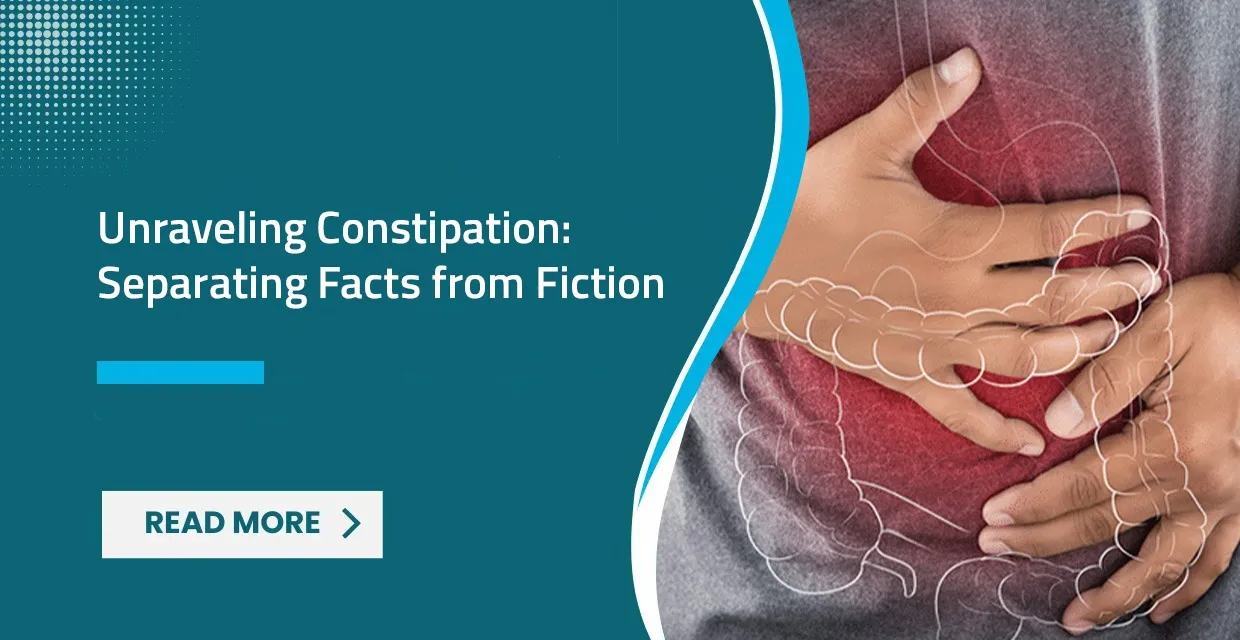Constipation, a common gastrointestinal issue, is often surrounded by misconceptions. Debunking these myths is crucial for understanding and managing constipation effectively. Here's a breakdown of some common constipation myths and the truths behind them:
Myth 1: Constipation is Rare
Reality: Constipation is quite common and affects people of all ages. It's one of the most frequent gastrointestinal complaints in the general population.
Myth 2: Constipation is Always Caused by a Poor Diet
Reality: While diet plays a significant role (especially low fiber intake), constipation can also result from a variety of factors including lack of physical activity, certain medications, and underlying health conditions.
Myth 3: Drinking More Water Will Always Relieve Constipation
Reality: Hydration is important, but simply drinking more water isn't always a solution. If dehydration isn't the cause of constipation, drinking excessive water won't be effective.
Myth 4: You Must Have a Bowel Movement Every Day
Reality: The frequency of bowel movements varies widely among individuals. It's normal for some people to have bowel movements several times a day, while others might only have them a few times a week.
Myth 5: Laxatives Are Always the Best Solution
Reality: Regular use of laxatives can sometimes worsen constipation or lead to dependency. It's better to use them as directed and focus on long-term lifestyle changes like diet and exercise.
Myth 6: Constipation is Just a Nuisance, Not a Serious Issue
Reality: While often not serious, chronic constipation can lead to complications like hemorrhoids or anal fissures. It's important to consult a healthcare provider if constipation is persistent.
Myth 7: Only Adults Get Constipated
Reality: Constipation can affect people of all ages, including children and infants. The causes and treatments may differ across age groups.
Myth 8: A High-Fiber Diet Will Immediately Cure Constipation
Reality: Increasing fiber intake is beneficial, but it's not an instant cure. It should be increased gradually, and it's also important to balance fiber intake with adequate hydration.
Myth 9: Constipation is Always the Result of Lifestyle Choices
Reality: Some medical conditions and medications can cause constipation, independent of lifestyle. For example, hypothyroidism, certain neurological disorders, and some pain medications can lead to constipation.
Myth 10: Using Enemas Regularly is a Safe Way to Manage Constipation
Reality: Frequent use of enemas can disrupt the natural balance of the gastrointestinal system and should only be used under medical advice.
Understanding Constipation
Effective management of constipation often involves a combination of dietary adjustments, increased physical activity, and, in some cases, medical intervention. It's important to understand that constipation can vary greatly from person to person, and what works for one individual may not work for another. If constipation is a persistent problem, it's always advisable to seek guidance from a healthcare professional.
In conclusion
Understanding the realities behind constipation is key to effectively managing and treating this common health issue. It's important to recognize that while diet and lifestyle choices play significant roles, various other factors including underlying health conditions and medications can contribute to constipation. Dispelling myths and acknowledging the diverse causes and remedies are crucial steps in achieving proper bowel health. Additionally, it's essential to approach constipation as a potentially serious health concern when it persists and to consult healthcare professionals for tailored advice and treatment. By separating fact from fiction, individuals can adopt more effective strategies for preventing and managing constipation, leading to better overall health and well-being.



